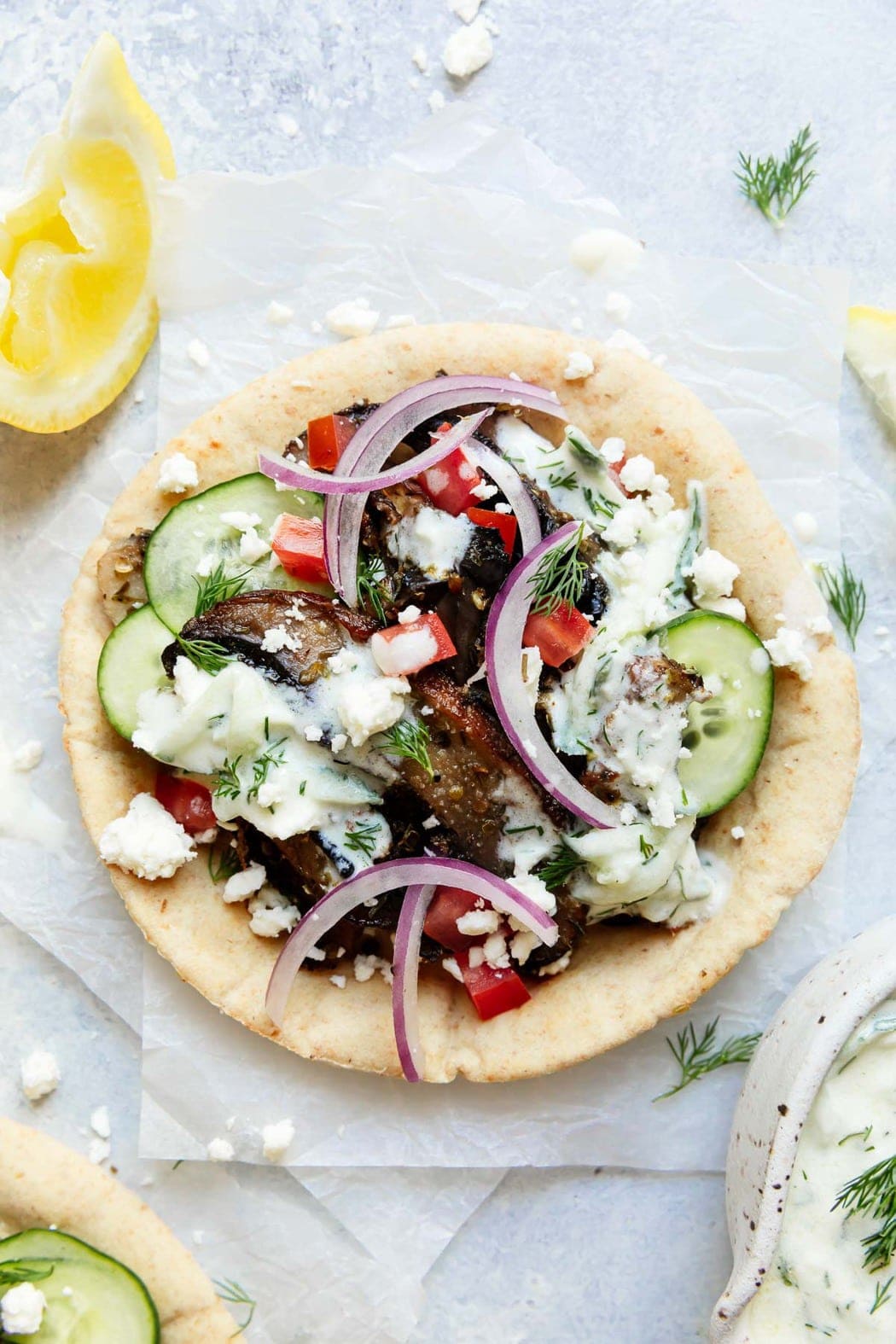redsoxdw_
Active member
I just stumbled upon a great souvlaki restaurant that had mushrooms instead of meat! It's called Street Souvlaki (Κατάστημα Ακτή Μιαούλη) in Pireas, if you're passing by, definitely check it out. This is a great option for tourists that are vegan. You can also find recipes to make it at home, but it tasted so good that I imagine it might be hard to replicate. Here is a link to one that I think will taste the same.

 therealfooddietitians.com
therealfooddietitians.com

Greek Vegetarian Gyros with Portobello Mushrooms
Our Greek Vegetarian Gyros with Portobello Mushrooms are easy to make and veggie loaded. A flavorful, easy, plant-based meal you'll love.



